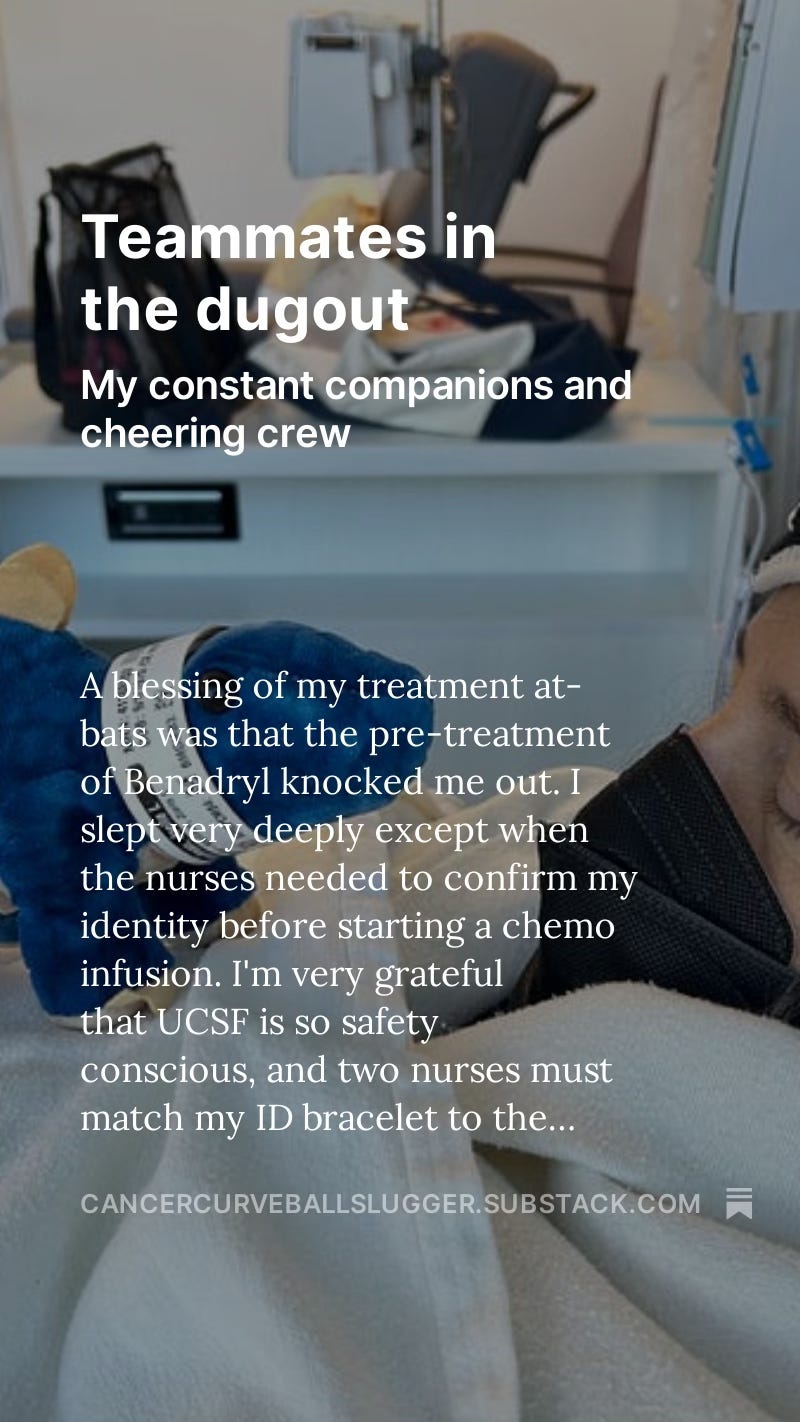Tell the nurses everything
Nurses are your coaching staff and need all the information you can provide
I don't like to complain. I pride myself on my resilience and problem-solving abilities, even though it sometimes stops me from getting support to make my experience more pleasant. Self-reliance is another subject to be pursued in moderation. During my cancer treatment, I didn't want to be a complainer. I'd seen what my mother, grandmother, sister, father-in-law, and friends had endured, and frankly, I was having an easier time than all of them. Gratitude is a known anxiety reliever and a natural upper, so I wanted to focus on appreciating what wasn't happening. But sometimes, I missed the memo about the benefits of asking for help - especially from your medical team. The companion memo states that not asking for help or sharing information creates stress for your healthcare team. What I thought was helpful and resilient was actually stressful and undermining my medical team.
I grind my teeth when I sleep. And sometimes, my tongue gets beaten up in the grinding. I slept through every chemo. In the fifth chemo, I woke up from my Benadryl nap and felt like my tongue was a little off. Just thick and slightly swollen. It wasn't bothering me much, and I didn't think it was worth mentioning. After all my treatment and post-treatment, my infusion nurse disconnected me from my IV when I said that my tongue felt a little thick during the treatment.

Que high alert.
I didn’t realize that the risk of a swollen tongue is that it can block my airway. I wasn’t having any trouble breathing and wasn’t even sure if it was swollen or if I just had ground my teeth during my nap and just caught the edge of my tongue. I didn’t want to bother the nurse with something so trivial.
Note to anyone having chemo - the nurses want to know everything as its happening. My nurse was pretty upset that I didn’t mention it. I’m sure she was having visions of me passing out with a blocked airway and she missed it. She didn’t. I didn’t. But I realized that I wasn’t bothe’t bothering her (or him - some of my nurses were men) by telling her what I was experiencing. In fact, my nurses vastly preferred more information to less.
That night, my tongue still felt off. My husband was out of town, and my friend Julie stayed with me in case I needed something and couldn't drive. We wound up at the ER to have it looked at and ensure that I didn't have any risk to my airway. That visit resulted in my becoming the proud carrier of an EpiPen and added more steroids to my medication collection if I needed fast action at home. I never did. And my dentist recommended a mouth guard.

It was a foul ball from my "at bat," - but there are many unexpected impacts from chemotherapy. Everyone thinks about nausea and hair loss because they're expected, and cancer-entertainment always includes those two dramatic side effects. But they're not the only ones. The "chemo-teach" session informed me about all the remote possibilities, and it's too much information to consume. I have pages of printouts about the different drugs in my regimens and all the side effects. It's too much information to consume. The statistical possibilities are too many to organize. What matters is what's happening to your body. One friend developed a massive rash across her entire body. Another developed tinnitus. A lot of us in the breast cancer community develop brain fog from the chemo. Everyone's experience in the batter's box is unique.
I desperately wanted to make my swing smooth and smash the pitch. In retrospect, it was mostly moderate and smooth at bat compared to other people's experiences. However, I learned that I needed to put aside self-reliance and communicate everything that was happening in my body so that my medical team could ensure I had the right "restraints" to keep me safe on the coaster. It turns out that sharing what's happening with experts who can help isn't whining; it's smart.


